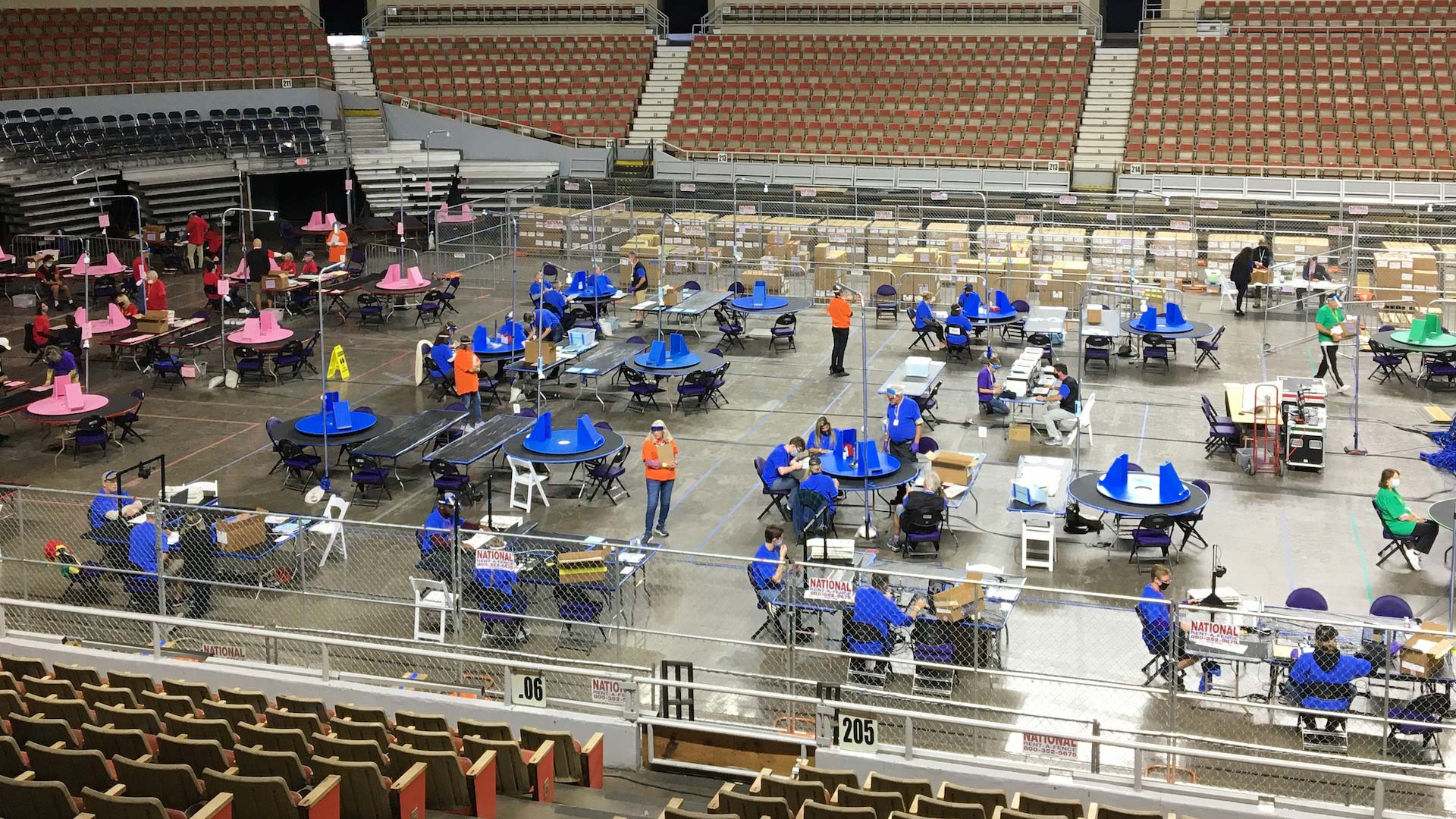 The Arizona Senate's contractors count ballots from Maricopa County inside the Veterans Memorial Coliseum during May 2021.
The Arizona Senate's contractors count ballots from Maricopa County inside the Veterans Memorial Coliseum during May 2021.
Andrew Oxford/pool photo
Arizona's Supreme Court says the state Senate can keep secret records related to its partisan review of the 2020 election.
Wednesday's ruling says the documents are exempt from disclosure because the audit was part of an investigation that could lead to new election laws.
The unanimous ruling means the public may never know much of what Republican Senate President Karen Fann and GOP Sen. Warren Petersen were telling the contractors hired to recount 2.1 million ballots from Maricopa County.
The review was prompted by former President Donald Trump's unsupported contention that he lost because of fraud.
The Senate “audit” confirmed President Joe Biden won and found no major problems with ballot counting and other election equipment.

By submitting your comments, you hereby give AZPM the right to post your comments and potentially use them in any other form of media operated by this institution.